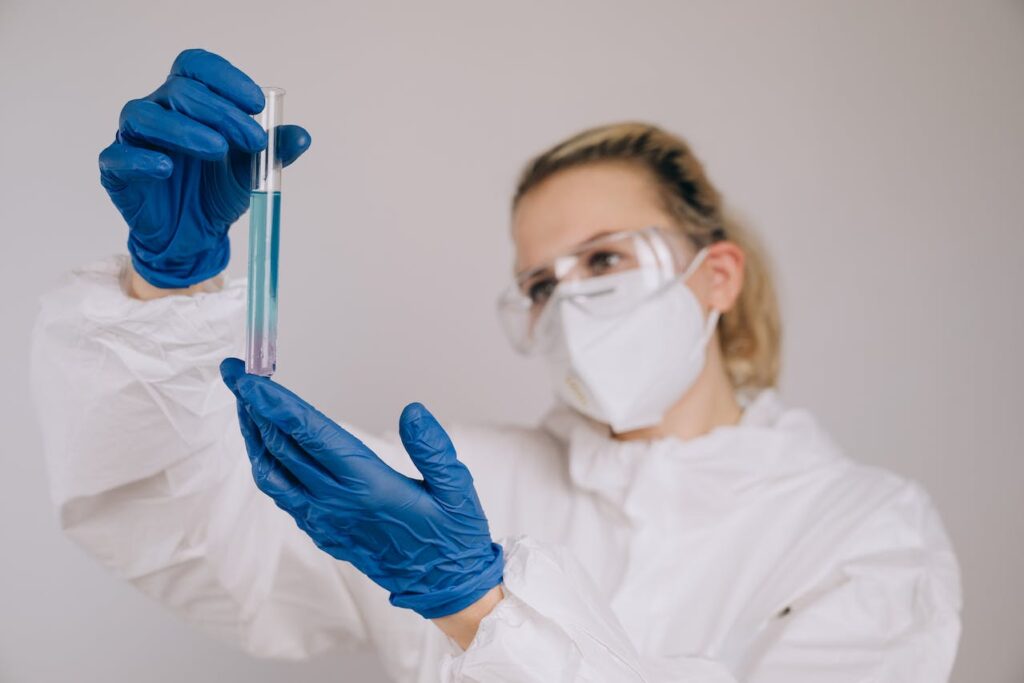Science isn’t just a subject taught in school—it’s the window through which we understand the universe. From the minuscule particles that make up everything around us to the vast expanse of space, science helps us discover, innovate, and marvel at the complexities and simplicities of the world. This article will dive into fascinating science facts, simple yet intriguing experiments you can do at home, and the latest gadgets that are making our lives more interesting and convenient.
Fascinating Science Facts That Will Blow Your Mind
The Mystery of Black Holes
Did you know that black holes aren’t actually holes? They are points in space with such strong gravitational pull that not even light can escape them. Imagine a place where time itself behaves differently—that’s a black hole for you.
The Miraculous Structure of DNA
The blueprint of life, DNA, is about 2 meters long when stretched out but fits into a space smaller than a human cell. It’s like fitting 30 miles of fishing line into a cherry pit!
Simple Science Experiments You Can Try at Home
Creating a Volcano with Baking Soda and Vinegar
This classic experiment isn’t just fun; it’s a fascinating way to understand chemical reactions. The eruption you see is the result of an acid-base reaction, showcasing the exciting and sometimes explosive results of combining different substances.
The Magic of Water Tension
A simple experiment with a glass of water, some pepper, and a drop of soap can teach you about the surface tension of water. It’s a great way to visualize how molecules interact at the surface.
Revolutionary Science Experiments That Changed the World
The Discovery of Penicillin
Alexander Fleming’s accidental discovery of penicillin in 1928 revolutionized medicine, introducing the era of antibiotics and changing healthcare forever.
The First Step on the Moon
The Apollo 11 mission, culminating in Neil Armstrong’s historic walk on the moon, was not just a monumental achievement in space exploration but also a testament to human curiosity and ingenuity.
Cool New Gadgets Inspired by Science
Smart Homes and IoT Devices
The Internet of Things (IoT) has transformed ordinary homes into smart homes, where devices communicate with each other, improving convenience and energy efficiency.
Wearable Fitness Trackers
Science has made its way into our daily routines through wearable technology that monitors our health and fitness, encouraging a healthier lifestyle through data and analysis.
How Science Influences Our Daily Lives
In the Kitchen
From the microwave to the refrigerator, science makes our culinary experiences easier, allowing us more time to enjoy the flavors of life.
In Transportation
Advancements in science have revolutionized how we move, from automobiles to airplanes, making the world more accessible and connected.
The Future of Science and Technology
Advancements in Artificial Intelligence
AI is shaping the future, with applications ranging from healthcare to entertainment, promising a world where machines can learn and make decisions to improve our lives.
Space Exploration and Mars Colonization
The dream of colonizing Mars is closer than ever, with science leading the charge in solving the challenges of long-term space habitation and interplanetary travel.
Conclusion: The Ever-Evolving Journey of Science
Science is an endless journey of discovery. With every question answered, a dozen more arise, pushing the boundaries of what we know and can achieve. It’s a path of constant learning, curiosity, and wonder that makes our lives infinitely richer.
FAQs
What is the most surprising fact about space?
The silence of space is profound—without air to carry sound, astronauts experience an eerie quiet, making space a place of silent beauty.
Can I perform science experiments safely at home?
Absolutely! Many simple experiments are safe and educational, but always follow safety guidelines and parental supervision when necessary.
What are some must-have gadgets for science enthusiasts?
From telescopes for stargazing to microscopes for exploring the microscopic world, the options are endless. Choose gadgets that fuel your curiosity and passion for learning.
How does science impact our health?
Science impacts our health in myriad ways, from advancements in medical treatments to the development of new fitness technologies, continually improving our quality of life.
What can we expect from the future of technology?
The future of technology promises even greater integration into our lives, with advancements in AI, quantum computing, and biotechnology, making today’s science fiction tomorrow’s reality.
How can young learners be encouraged to pursue a career in science?
Encouraging curiosity, providing hands-on learning experiences, and fostering a supportive environment can inspire young learners. Role models and mentors in the field can also play a significant role in motivating them to explore scientific careers.
What role does citizen science play in today’s research?
Citizen science allows everyday people to contribute to scientific research, from tracking bird migrations to monitoring air and water quality. This collaborative effort between scientists and the public can lead to discoveries and data collection on a scale that wouldn’t be possible otherwise.
Are there any new technologies helping combat climate change?
Yes, innovative technologies like carbon capture and storage, renewable energy sources (solar, wind, hydro), and electric vehicles are at the forefront of efforts to combat climate change. These technologies aim to reduce greenhouse gas emissions and our reliance on fossil fuels.
What is the importance of space exploration in the context of Earth’s future?
Space exploration not only advances our understanding of the universe but also helps us address challenges on Earth. Technologies developed for space missions have led to innovations in medicine, transportation, and environmental protection. Moreover, exploring other planets like Mars can provide insights into sustainable living and the potential for human habitation beyond Earth.
